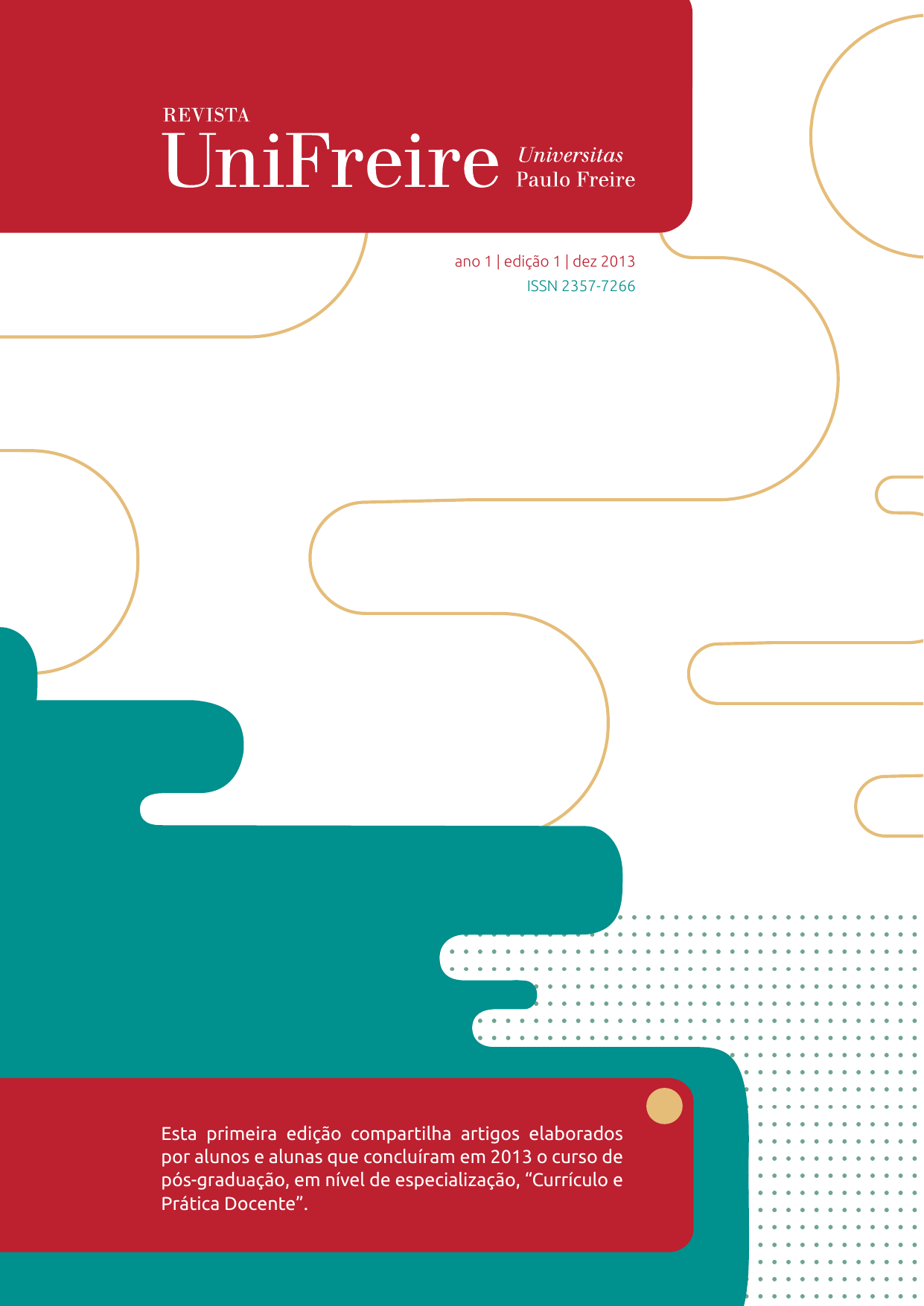THE PLAYFUL AND THE DEVELOPMENT OF CHILDREN WITH LEARNING DIFFICULTIES
Keywords:
Playful, Play, GamesAbstract
This paper aims to address the importance of play, games and special activities, turning each lesson into something motivating, fun and meaningful for every student, especially a group of students who showed demotivation in learning for several reasons. For this, it was necessary to seek to understand issues related to the difficulties in the literacy process, using ludic games as a facilitator resource to the student with learning difficulties in literacy process. The game can and should be used. Once to exercise it it awaken feelings of challenge, that may help in the competence to solve daily situations. Through the performing of this research, I concluded that facing a new world, with so many technology and innovations such as the Internet, cell phones etc., the current students are not motivated to learn and seated and behaved anymore, like twenty, thirty, forty years ago . It is necessary creative, innovative classes, especially when, unfortunately, the vast majority of schools, public and even private, do not have these interesting and advanced technologies yet such as the computer and the Internet.
References
ALMEIDA, Paulo Nunes de. Educação lúdica: técnicas e jogos pedagógicos. 11 ed. São Paulo: Loyola, 2003.
FERREIRO, Emilia. Reflexões sobre alfabetização. São Paulo: Cortez, Autores Associados, 1985.
_______. Alfabetização em processo. São Paulo: Cortez, 1993.
FREIRE, Paulo. A importância do ato de ler: em três artigos que se completam. 36 ed. São Paulo: Cortez,1998.
LOPES, Maria da Glória. Jogos na educação: criar, fazer, jogar. 4. ed. São Paulo: Cortez, 2001.
MACEDO, Lino de. Os jogos e sua importância na escola. Cadernos de pesquisa, São Paulo, n. 93, p. 5-11, mai. 1995.
OLIVEIRA, Marinalva de et al. (Orgs.). Reorientação curricular da educação infantil e ensino fundamental. São Paulo: Editora e Livraria Instituto Paulo Freire, 2011.
PIAGET, Jean. A formação do símbolo na criança. Rio de Janeiro: Zahar, 1978.
_______. O nascimento da inteligência na criança. Rio de Janeiro: Guanabara, 1987.
RAMOS, Maria da Conceição Aparecida Leira. Jogar e brincar: representando papéis, a criança constrói o próprio conhecimento e, consequentemente, sua própria personalidade. Revista do Instituto Catarinense de Pós-Graduação, n. 1, [200-]. Disponível em: <http://www.posuniasselvi.com.br/artigos/rev01-07.pdf>. Acesso em 30 jun. 2013.
VYGOTSKY, Lev S. A formação social da mente. São Paulo: Martins Fontes, 1984.
_______. Pensamento e linguagem. São Paulo: Martins Fontes, 1987.


